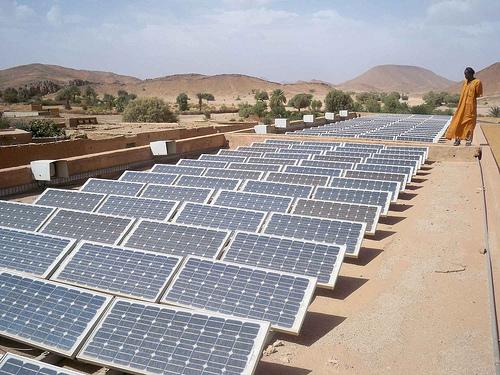Achim Steiner, Executive Director of the United Nations Environment Programme (UNEP), says that Africa is establishing a movement towards cleaner energy. Affirming their advocacy for renewable energy at the United Nations climate summit in Lima, Peru, Africa intends to lower their carbon footprint by using its abundant renewable resources including geothermal, solar, wind and water.
In Africa, the use of renewable energy can already be seen in Ethiopia, Kenya, Namibia, Mozambique, and Egypt. According to Steiner in his interview in Inter Press Service (IPS), the increasing use of clean power could mean that the energy problems across the continent will be taken care of in the coming fifteen years.
Africa takes action in developing renewable energy industry
As an example of the continent’s commitment, Steiner used the UNEP headquarters in Nairobi, Kenya which installed photovoltaic panels on the roof and it is currently producing 750,000 kilowatt hours of electricity every year. This is enough to power and operate the entire building including the UN Habitat, totaling of roughly 1,200 people.
Although the installation of these panels will take UNEP about 8 to 10 years to pay off, the use of these panels also means that there will be no power bills to be paid for over 13 years.
In fact, East Africa is already working at reforming and developing a greener continent, especially with Kenya and Ethiopia working at targeting the use of renewable sources with a focus on geothermal energy. In the coming five years, Kenya is planning on tripling the generation of electricity up to 6000 megawatts. And with this plan, more than 90 percent would be coming from solar, wind, and geothermal energy.
Kenya and Ethiopia leading the way towards goals of a greener continent
Right now, Kenya is running a geothermal power development corporation, which is a public-private partnership that invites private investors to bid. Currently, it is establishing a firm that would be powered by the use of wind energy and would undoubtedly be the largest in Africa with a capacity of 350 megawatts of power.
On the other hand, Ethiopia is also currently doing an expansion to their Aluto-Langano geothermal plant. The expansion will create an increase to their geothermal generation capacity ten times from its current 7 megawatt capacity. The Ethiopian government is financing this expansion at $10 million, with Japan promising a $12 million grant; and a loan from the World Bank at $13 million.
Japan and World Bank aid in financing Ethipian renewable expasnion
Although renewable expansion are predicted to be costly, Steiner also sees the many benefits that come with it. Like any large investment, upfront initial capital is needed. Then again, the direction where Africa is headed, the need for global fuel market will be reduced.
What’s more, the goal Africa is hoping to achieve is for every part of the continent to be able to enjoy the freedom of reliable energy with the use of their abundunt renewable sources without having to wait for power lines.
Photo by: Magharebia on Flickr



